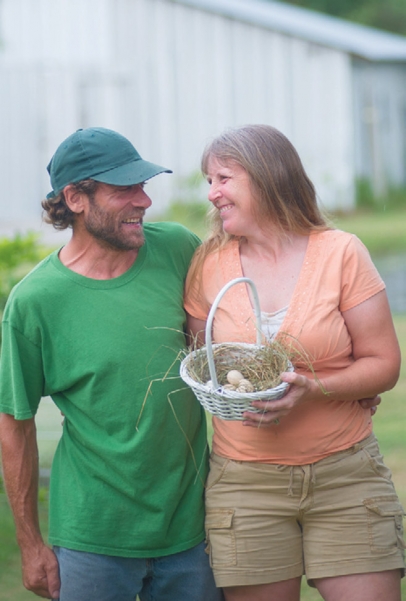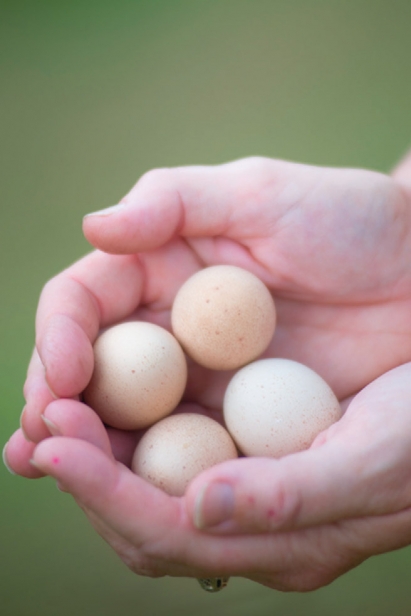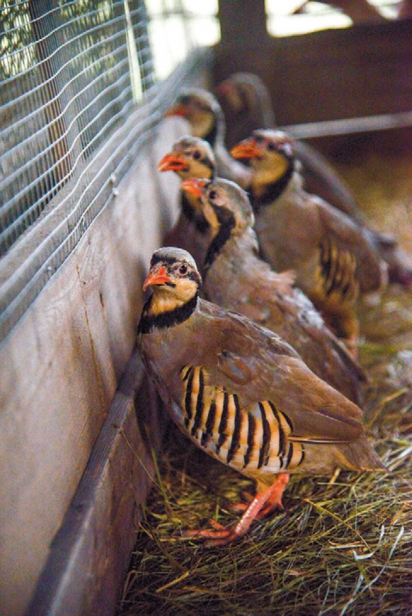The Little Flockers Farm
“Good morning, little flockers!” Carol Etscovitz calls out to her fleet of 53 partridge birds for their first feeding of the day. It’s 7:30 a.m. They have been clucking impatiently since 5. The hens whirl up a sandstorm, kicking dust over the wooden deck they have laid eggs on, and the cocks begin their usual taunt and tease from their pen beside them. Old MacDonald had a farm, but not like this.
The Little Flockers Farm stretches 1,500 feet long, encompassing five acres in Myakka City. Since moving from New Hampshire in 2015 with dreams of owning livestock, Etscovitz and her husband, Dave, have worked diligently to revive their slumbered home and property and turned it into an oasis for their plants and animals. The Etscovitzes have 200 different fruit trees, plants and olive tree groves, goats, Bourbon Red turkeys, a turtle, a parakeet, a horse, a dog, and their most unique animals, partridges.
The Etscovitzes laugh when they talk about their Asian Chukars and their riotous behavior, almost as if they were children. It reminds me of the opening song from the ’70s TV show, “The Partridge Family”: “Hello world here’s a song that we’re singing, come on get happy…”
“We have to keep the males and females separate, because the males can get aggressive. But, we keep them close by, so the hens stay interested. Pheromones are important!” Dave chuckles. “… A whole lot of lovin’ is what we’ ll be bringing…”
Rather than a traditional wire pen, the partridges enjoy an elevated home that Dave built from wood. It was important to the Etscovitzes that the partridges have a habitat that is comfortable. After all, happy hens lay the most eggs.
A partridge egg looks similar to a quail egg. It is small and speckled on its shell, but has a richer yolk. The Etscovitzes believe they are the only partridge egg distributors in the state.
Catering to a niche market, they sell their eggs only to chefs willing to work creatively.
“Our buyers have to be skilled, talented, and jazzed in order to give the egg the consideration it deserves,” Dave says.
From 45 hens, the Little Flockers Farm gathers an average of 30 eggs a week. Laying season runs from July to September. Dave talks of their hopes to acquire another 100 partridges in the next year to balance out the time when the other hens are in resting. The Etscovitzes display pride and excitement when describing their cottage-style business. Operating with a limited poultry license, they cannot keep large sums of livestock on their property without creating a separate facility. Having an anti-factory mentality, they are more than content with that.
“I refuse to ever get so big that we don’t know what’s going on,” Etscovitz says.
The Etscovitzes are tenderhearted, projecting happiness and quality of life onto everything that lives on the farm. With wide smiles that the couple both share, how could the Little Flockers Farm not sing, “…We’ ll make you happy!”?
The Little Flockers Farm: Myakka City; 603-498-0456







